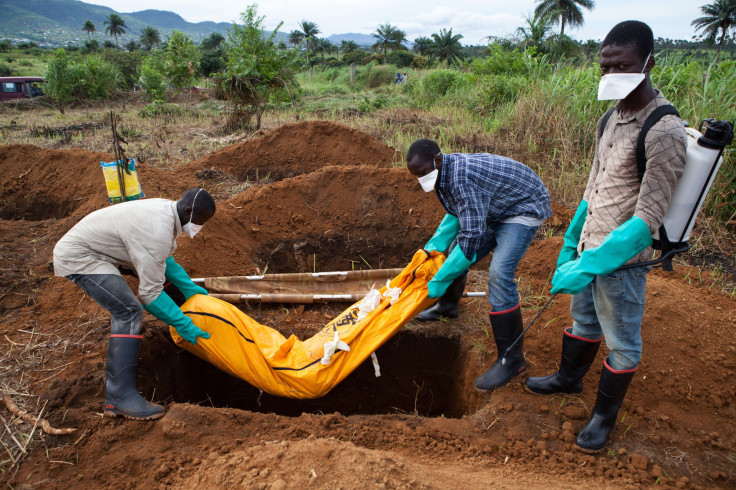Ebola Outbreak 2014: Ebola Riot Turns Deadly In Sierra Leone Town

Tensions in Ebola-stricken Sierra Leone worsened on Tuesday after two people were reportedly shot dead in a riot over a suspected case of Ebola virus disease, causing authorities to impose a curfew in the eastern town of Koidu, according to news reports Wednesday. David Koroma, the head of the local police unit in Koidu, told Reuters it all began when a former youth leader wouldn’t allow health officials to take her 90-year-old grandmother for Ebola testing. The dispute escalated into gunfire and rioting and a local civil society leader said he had seen at least two bodies with gunshot wounds. Koroma said armed youth had fired at authorities but denied anyone had been shot dead.
Koidu is in the diamond-mining district of Kono, which doesn't have an Ebola treatment center, so patients must be taken to neighboring cities, according to the Reuters report. It’s not the first time Sierra Leoneans have clashed with government officials in their attempt to prevent the worst Ebola outbreak in history from spreading. Last month, health care workers were attacked in a village east of Freetown, the capital of Sierra Leone, while attempting to bury five victims of the deadly virus.
Sierra Leone, a small, impoverished West African nation seeking to emerge from decades of war and instability, has been among the countries most badly affected by the virus. As of Oct. 14, Ebola has killed 1,200 Sierra Leoneans. The current outbreak in West Africa has killed more than 4,500 people in Liberia, Sierra Leone and Guinea, according to the latest data from the Centers for Disease Control and Prevention.
The World Health Organization’s emergency committee is scheduled to meet in Geneva Wednesday to discuss the Ebola epidemic and consider whether stricter travel regulations should be enforced, according to a BBC News report.
© Copyright IBTimes 2025. All rights reserved.





















